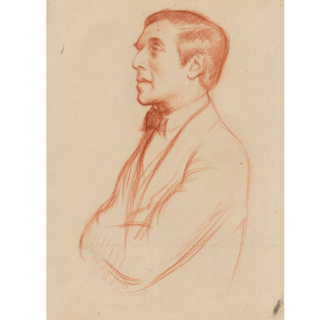Discover Your Roots
SIGN UPDiscover Your Roots
SIGN UPHumbert is a male name of English origin, meaning "Bright Warrior". Derived from the Germanic elements hun, meaning "warrior", and beraht, meaning "bright", it also serves as a surname. Throughout history, it has been associated with notable figures such as Humbert I, Count of Savoy, and Humbert of Silva Candida, a Roman Catholic cardinal. In modern times, it is borne by individuals like Ugo Humbert, a French tennis player. Additionally, the name has made appearances in fiction, with Humbert Humbert being the infamous narrator of the novel "Lolita". The name's significance and historical prominence make it a meaningful choice for those seeking a name that embodies strength and brightness.

Humbert Wolfe (1885-1940) was an influential Italian-born British poet, writer, and civil servant. Born in Milan to a Jewish family, he was raised in Bradford, West Riding of Yorkshire and later attended the University of Oxford. Wolfe's career in the Civil Service led to high positions and accolades, including the honors of CBE and CB. He was known for his diverse literary works, including poetry, translations, and critical essays. While he had a long-term affair with novelist Pamela Frankau, he remained married. Wolfe's poetry remains less read in contemporary times, but his famous epigram from "The Uncelestial City" is still widely quoted. His legacy is commemorated by five busts created by sculptor Anthony Padgett at significant locations related to Wolfe's life. Wolfe's diverse body of work includes "London Sonnets," "The Lilac," "The Unknown Goddess," "Requiem," "Kensington Gardens," "The Uncelestial City," and translations of works by Heinrich Heine and others. His contributions to literature and civil service continue to be remembered and celebrated.




All images displayed on this page are sourced from Wikipedia or Wikimedia Commons.We use these images under their respective Creative Commons or public domain licenses. Wherever applicable, author attributions and license information are provided. If you believe an image is used incorrectly or outside its license terms, please contact us so that we can review and correct the issue.